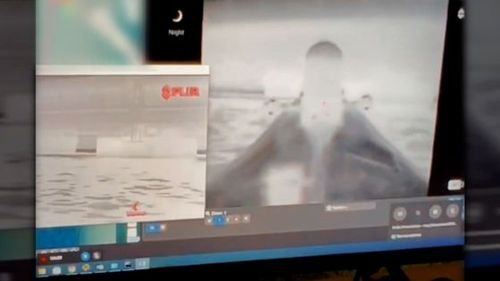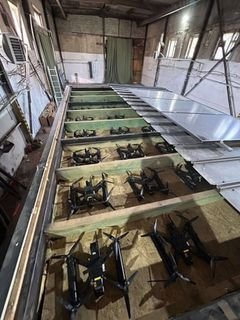Ukrainian drones attacked several Russian airbases in the boldest operation yet.
Ukraine carried out its most audacious military operation in the ongoing war with Russia, codenamed "Operation Spider Web." The audacious attack targeted four Russian airbases located deep in enemy territory, destroying or damaging more than 40 strategic aircraft, including nuclear-capable Tu-95 and Tu-22M bombers and A-50 reconnaissance aircraft.
The operation, which Ukrainian President Volodymyr Zelensky praised as a "spectacular" and "absolutely unique" success, rocked Russia's military establishment and sent a powerful message to both Moscow and Ukraine's Western allies ahead of peace talks in Istanbul. The operation, conducted by Ukraine's Security Service (SBU) under the direct supervision of Zelensky and SBU chief Vasyl Maliuk, took 18 months to prepare. Ukrainian operatives smuggled 117 first-person-view (FPV) drones into Russia by hiding them inside wooden sheds mounted on trucks. These mobile units were moved to strategic locations near the targeted airbases, including Belaya in Irkutsk Oblast, 4,300 km from Ukraine, and Olenya in Murmansk, 1,800 km away. At specified times, the roofs were remotely opened, releasing swarms of explosives-laden drones that attacked with devastating precision. The SBU reported that the strikes disabled 34% of Russia's strategic cruise missile carriers, causing $7 billion in damage.
Satellite imagery from US aerospace company Umbra Space confirmed the destruction of at least seven aircraft, while unconfirmed footage circulated on social media showed Russian bombers engulfed in flames. The attack was a direct response to Russia's escalating airstrikes. Russia's Defense Ministry acknowledged attacks on five airbases, including Ivanovo, Ryazan and Amur, but claimed that only "several" aircraft were damaged and most of the drones were shot down. However, the scale of the operation and reports from Ukrainian sources is a major setback for Russia's strategic aviation. While Russian officials labelled the attacks "terrorist acts", regional governors confirmed that shots were fired at the Belaya and Olenya bases. The success of the operation has been considered a morale booster for Ukraine, with analysts calling it a "dark day" for Russia's war efforts. As Ukraine's delegation, led by Defence Minister Rustam Umarov, prepares for the Istanbul talks, the operation has exposed Kiev's refusal to appear weak. Despite Russia's failure to provide the promised ceasefire memorandum, Zelensky's government signalled its readiness for negotiations by proving its ability to strike deep into Russian territory. Operation Spider Web, for its mix of ingenuity, boldness and precision, will likely be remembered as a landmark moment in Ukraine's defence against Russian aggression.

